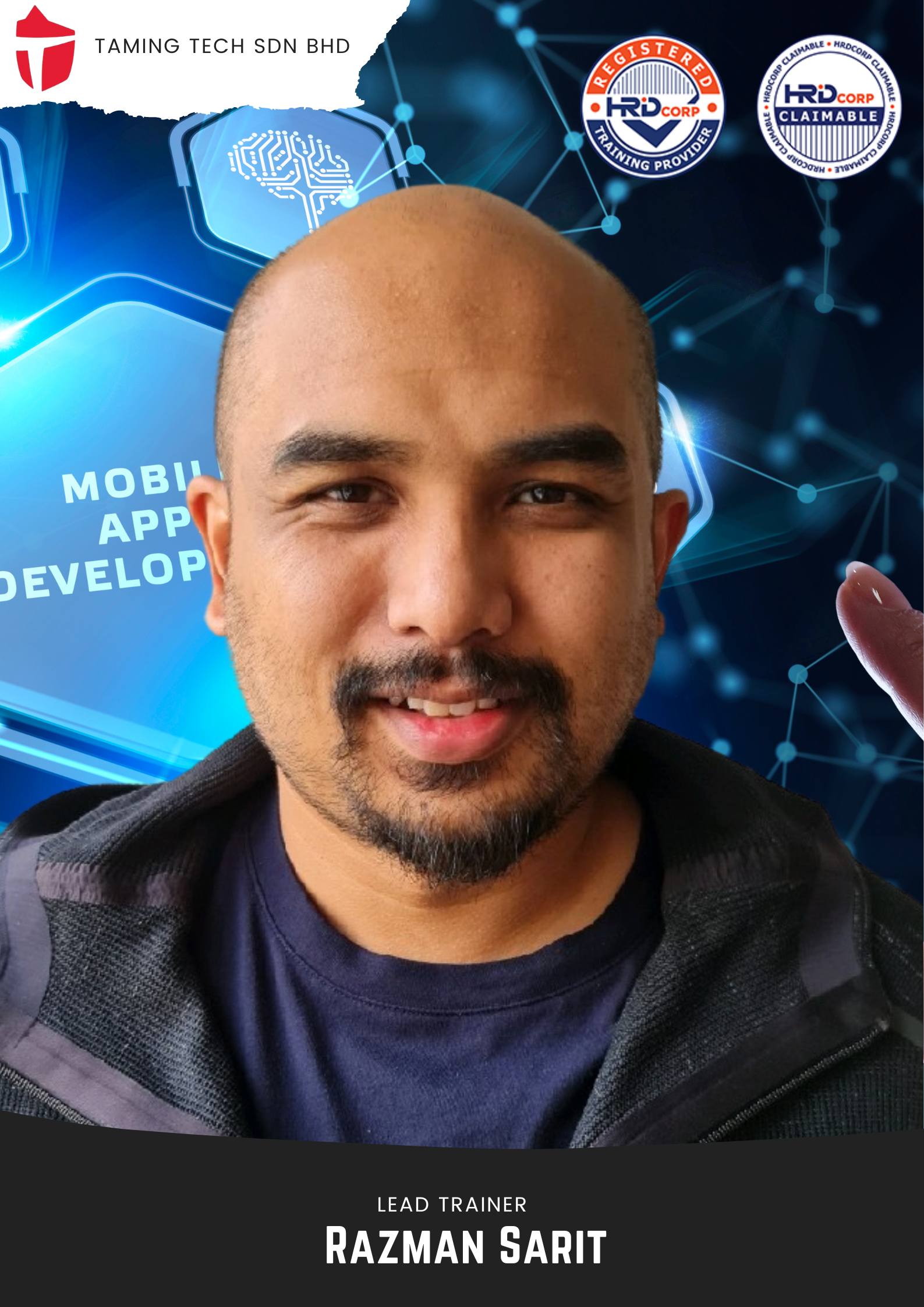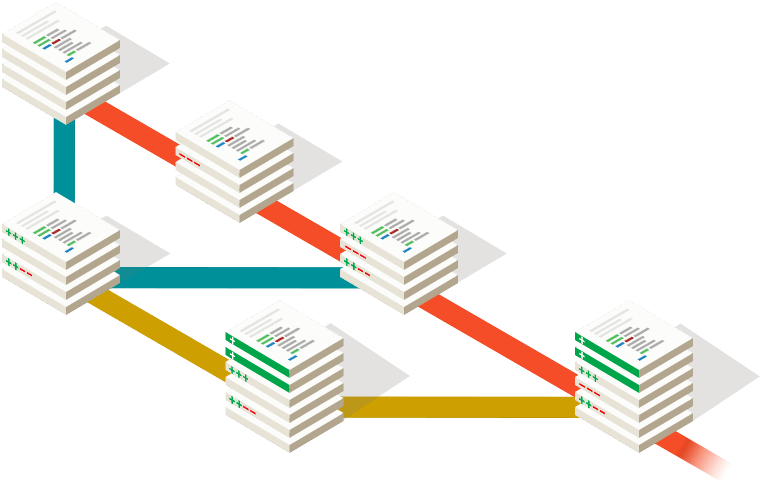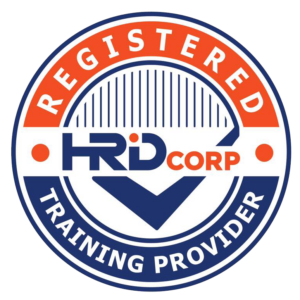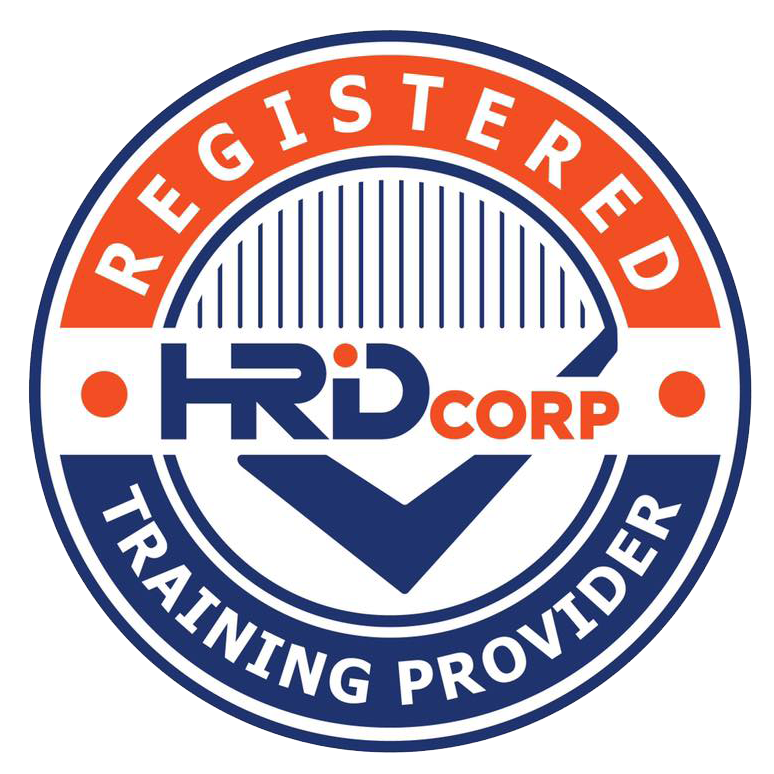CERTIFIED HRDF PROGRAM
Git Mastery Bootcamp
Course Duration: 2 Days
Course Format: Interactive Lectures, Hands-On Labs
Pre Register Today

Professional Summary: Razman Yusof Bin Mohd Sarit is a seasoned software developer and educator with over 20 years of experience in the IT industry.
He is the Managing Director of Atas Awan Sdn Bhd, a consultant and software development company specializing in embedded systems, mobile application development, and IT-based training in Malaysia.
Razman has a strong background in computer interactive systems and business management, holding a B.Eng (Hons) from the University of Birmingham and a PGDip from the University of Wolverhampton.
4 Days complete training
Recognised Digital Credential
Industry Validated
Online Support

Upcoming Training Date
Friday – Monday
Friday – Monday
Friday – Monday
Friday – Monday
Course Overview
Course Description: This intensive 2-day bootcamp is designed to provide participants with a deep understanding and practical skills in using Git, a distributed version control system.
The course covers fundamental concepts, basic and advanced Git commands, branching strategies, collaboration techniques, and the integration of Git with CI/CD pipelines.
By the end of the course, participants will be proficient in managing and collaborating on projects using Git, optimizing workflows, and maintaining code quality.

Target Audience
The target audience includes:
Software Developers and Engineers:
- Individuals who are actively involved in coding and software development and want to enhance their version control skills.
IT Professionals and Project Managers:
- Those responsible for overseeing software projects, ensuring code quality, and managing development workflows.
DevOps Engineers:
- Professionals who integrate and automate development and operations tasks and need to incorporate version control systems into CI/CD pipelines.
QA Testers:
- Quality assurance professionals who need to understand version control to manage test cases, track changes, and collaborate with developers.
Students and Academics:
- Computer science or IT students who want to gain practical experience with Git, a crucial tool in the industry.
- Educators and researchers looking to manage code and collaborate on academic projects.
Freelancers and Independent Developers:
- Freelancers who manage their own projects and collaborate with clients or other developers.
Team Leads and Technical Leads:
- Leaders who guide development teams and need to implement efficient version control practices to streamline workflows and enhance collaboration.
Entrepreneurs and Startup Founders:
- Individuals starting tech businesses who need to manage their codebase and ensure smooth collaboration within their teams.
Perquisites
- Basic understanding of programming concepts.
- Familiarity with command-line interfaces.
Learning Outcomes
Learning Outcomes: Participants will be able to:
- Understand basic Git concepts and terminology (commit, branch, merge, repository).
- Initialize and configure Git repositories.
- Use essential Git commands for common operations (clone, add, commit, push, pull).
- Interpret Git command outputs and understand their implications.
- Apply branching and merging strategies to manage parallel development workflows.
- Collaborate effectively using remote repositories.
- Evaluate and implement different Git workflows (centralized, feature branching, GitFlow).
- Design branching and tagging strategies for release management and versioning.
- Integrate Git into CI/CD pipelines to automate testing and deployment.
- Assess Git’s impact on collaboration, productivity, and code quality.
- Critique Git branching strategies in facilitating development and code review processes.
Course Materials
The course materials include the following:
Slides and Lecture Notes:
- Comprehensive slide decks covering all topics, from Git fundamentals to advanced branching strategies and CI/CD integration.
- Detailed lecture notes that participants can refer to during and after the course.
Command Line and VS Code Setup:
- Instructions and resources for setting up Git, command line tools, and Visual Studio Code for hands-on exercises.
Sample Code and Repositories:
- Example Git repositories for participants to clone, explore, and practice with.
- Sample code snippets demonstrating various Git commands and workflows.
Hands-On Lab Exercises:
- Step-by-step guides and exercises for participants to practice Git commands, branching, merging, and resolving conflicts.
- Exercises for setting up and using remote repositories like GitHub and Bitbucket.
Quizzes and Assessment Tools:
- Daily review quizzes to reinforce learning and ensure understanding of key concepts.
- Final assessment to evaluate participants’ knowledge and skills acquired during the course.
CI/CD Pipeline Integration Resources:
- Guides and examples for integrating Git with CI/CD pipelines, including automation of testing and deployment processes.
Best Practices Documentation:
- Documentation on Git best practices, commit hygiene, and repository management.
- Strategies for designing branching and tagging for release management and versioning.
Case Studies and Real-World Examples:
- Case studies showcasing different Git workflows (centralized, feature branching, GitFlow) in various project scenarios.
- Real-world examples of handling large projects and optimizing Git performance.
Feedback and Q&A Sessions:
- Structured Q&A sessions for participants to clarify doubts and ask questions.
- Feedback forms to gather participants’ insights and suggestions for course improvement.
Certificate of Completion:
- Certificate awarded to participants who successfully complete the course and pass the final assessment.
Day 1
Introduction and Git Fundamentals
-
09:30 – 09:50 | Ice Breaker Game:
- Activity: Desert island, 3 items
- Purpose: Participants get to know each other and build a comfortable learning environment.
09:50 – 10:30 | Topic 1: Understanding Version Control and Git Fundamentals
- Lecture: Introduction to version control systems and Git.
- Explanation of key concepts: commit, branch, merge, and repository.
- Group Discussion: Discuss the importance and benefits of version control in software development.
- Materials: Slides
- Learning Outcome: Recall the basic concepts and terminology associated with Git repositories.
10:30 – 10:45 | Break
10:45 – 12:00 | Topic 2: Git Installation and Configuration
- Lecture: Install Git and configure user settings.
- Setting up username and email in Git configuration.
- Group Discussion: Common installation issues and solutions.
- Hands-On Exercise: Participants install Git on their machines and configure basic settings.
- Materials: Slides
- Learning Outcome: Utilize Git commands to initialize a new repository, stage changes, commit changes with meaningful messages, and create branches.
12:00 – 13:45 | Lunch
13:45 – 14:45 | Topic 3: Working with Git: Basic Commands
- Lecture: Overview of basic Git commands (add, commit, push, pull).
- Explanation and demonstration of each command.
- Hands-On Exercise: Participants practice using basic Git commands on sample repositories.
- Materials: Slides
- Learning Outcome: Memorize the commands for common Git operations, interpret the output of Git commands, and understand their implications on the repository’s state and history.
14:45 – 15:00 | Energizer
- Activity: Guess what is in the picture
- Materials: Slides, special gift
15:00 – 15:30 | Topic 4: Branching and Merging
- Hands-On Exercise: Create branches, perform merges, and resolve conflicts.
- Practical exercises to demonstrate branching and merging strategies.
- Materials: Slides, Command Line Terminal
- Learning Outcome: Apply branching and merging strategies to manage parallel development workflows effectively.
15:30 – 15:45 | Break
15:45 – 17:00 | Topic 5: Remote Repositories and Collaboration
- Lecture: Introduction to remote repositories (GitHub, Bitbucket).
- Explanation of how to push and pull changes to and from remote repositories.
- Hands-On Exercise: Participants set up remote repositories and practice collaboration techniques.
- Materials: Slides, Command Line Terminal, and VS Code
- Learning Outcome: Employ Git to collaborate with team members by pushing and pulling changes to and from remote repositories.
Day 1 Review Quiz
- Participants will review the concepts learned during the day through a quiz to reinforce their understanding.
Day 2
Advanced Git Techniques and Best Practices
09:30 – 09:50 | Day 1 Review Quiz
- Activity: Hands-on quiz to reinforce understanding of Day 1 concepts.
- Materials: Slides, Google Form
- Purpose: Reinforce participants’ understanding through a review of the previous day’s sessions.
09:50 – 10:30 | Topic 6: Advanced Branching Strategies
- Lecture: Explore advanced branching strategies (e.g., GitFlow, feature branching).
- Discussion of different Git workflows and their applications.
- Materials: Slides
- Learning Outcome: Evaluate different Git workflows and analyze their strengths and weaknesses in various project scenarios.
10:30 – 10:45 | Energizer
- Activity: Guess what is in the picture
- Materials: Slides, special gift
10:45 – 12:00 | Topic 7: Git Best Practices
- Lecture: Best practices for Git repository management, commit hygiene, and documentation standards.
- Discussion on creating meaningful commit messages and maintaining a clean repository.
- Materials: Slides
- Learning Outcome: Design branching and tagging strategies to support release management and versioning requirements.
12:00 – 13:45 | Lunch
13:45 – 14:30 | Topic 8: Git in CI/CD Pipelines
- Lecture: Integrating Git into Continuous Integration/Continuous Deployment (CI/CD) pipelines.
- Explanation of CI/CD concepts and benefits.
- Hands-On Exercise: Participants practice setting up a basic CI/CD pipeline with Git.
- Materials: Slides, Command Line Terminal
- Learning Outcome: Integrate Git into a CI/CD pipeline to automate testing and deployment processes.
14:30 – 14:45 | Break
14:45 – 15:30 | Topic 9: Handling Large Projects and Performance Optimization
- Lecture: Strategies for managing large projects and optimizing Git performance.
- Tips on handling large repositories and improving performance.
- Materials: Slides, VS Code
- Learning Outcome: Assess the impact of Git on project collaboration, productivity, and code quality.
15:30 – 15:45 | Energizer
- Activity: Guess what is in the picture
- Materials: Slides, special gift
15:45 – 16:45 | Topic 10: Code Review and Pull Request Workflow
- Lecture: Implementing code review processes using pull requests.
- Discussion on best practices for code reviews and the benefits of pull requests.
- Materials: Slides
- Learning Outcome: Critique the effectiveness of Git branching strategies in facilitating concurrent development and code review processes.
16:45 – 17:00 | Topic 11: Recap and Conclusion
- Review: Key concepts covered during the two-day course.
- Q&A Session: Address any remaining questions and collect feedback.
- Materials: Slides, VS Code
17:00 – 17:15 | Break
17:15 – 17:45 | Final Assessment
- Activity: Participants complete a final assessment to evaluate their knowledge and skills acquired during the course.
17:45 – 18:00 | Certificate Handover Ceremony
- Activity: Presentation of certificates to participants who successfully complete the course.

Human Resorces Development Corporation Approved Center
All our certification training are HRD Corp claimable under the Skim Bantuan Latihan (SBL and SBL-Khas Scheme). For training under the SBL-Khas Program, No upfront payment is required.


